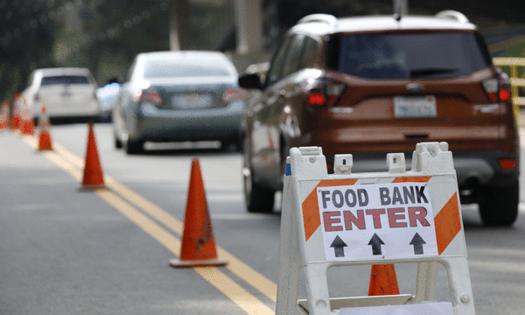Judge orders US officials to fully fund food aid amid shutdown
Published in News & Features
WASHINGTON — A U.S. judge ordered Trump officials to fully cover the cost of food-aid benefits for more than 42 million eligible Americans this month, rejecting an administration plan to only partially fund the program during the government shutdown.
The order from U.S. District Judge John McConnell on Thursday means that the U.S. Department of Agriculture must tap alternative reserve funds to send states the $8.5 billion to $9 billion needed this month for the Supplemental Nutrition Assistance Program, or SNAP, as the budget impasse in Congress drags on.
The administration previously had committed to covering 65% of benefits this month after losing an earlier round in court, while warning that the recalculation process was likely to cause weeks or even months of delays.
McConnell said that the administration must make all of the funds available to states by Friday. He found that officials had failed to comply with his earlier order and that the “irreparable harm” continued “by the minute.”
“The evidence shows that people will go hungry,” the judge said.
McConnell rebuffed arguments by a Justice Department lawyer that the administration had done all it could to comply by making the partial funding available to states earlier in the week. The federal government couldn’t control how fast states recalculated amounts that households were eligible to receive and processed the revised benefits, the government lawyer said.
The judge said that his original order was clear that the administration could only choose the partial funding option if it could ensure that money would become available to SNAP recipients this week. If it couldn’t guarantee that, he said, U.S. officials were obligated to immediately make the full payment amount instead and avoid any administrative burdens — even if the delays were due to issues at the state level.
‘Gone without’
“People have gone without for too long,” McConnell said. “Not making payments to them for even another day is simply unacceptable.”
McConnell, who sits in Rhode Island, previously ruled that the administration’s suspension of SNAP during the shutdown is likely unlawful. He ordered the Agriculture Department to at least use a contingency fund to pay for November benefits — and to do so quickly — or to consider using other available reserves to avoid a shortfall, chiefly a child nutrition program fund that pulls from U.S. customs duties.
The administration had told McConnell in an earlier court filing that the contingency fund only had enough money to cover 50% of November’s benefits. The night before Thursday’s hearing, however, government lawyers alerted the judge that the contingency could fund about 65%, explaining that the Agriculture Department performed “further calculations” and quickly notified states after realizing the “error.”
The coalition of nonprofits, churches and cities that sued in Rhode Island accused the administration of failing to comply with McConnell’s Oct. 31 temporary restraining order. They claimed that officials made an unlawful “arbitrary and capricious” decision to not use the nutrition program’s funding to fully cover November benefits and of dragging their feet in making money available to states as quickly as possible.
School meals
The Justice Department argued that the administration “reasonably” decided against transferring money out of the child nutrition program fund to close the gap for November’s SNAP benefits. The government said there were “calamitous concerns” that such a move would “blow a hole” in a reserve used to pay for school meals, among other things.
During a court hearing on Thursday, a lawyer for the groups that sued said that the administration’s rationale for not using the child nutrition fund now was implausible, since that move would only affect funding levels for those programs if the shutdown lasted through next summer.
McConnell agreed with the challengers, saying that the government’s reasoning for not transferring money from the alternative reserve was “incredible” and unsupported by the evidence.
The administration is facing at least three lawsuits over the SNAP suspension. A federal judge in Massachusetts indicated she was likely to rule against the government in a case filed by Democratic officials from more than two dozen states and the District of Columbia, but has yet to formally order the government to act.
A proposed class action on behalf of individuals who rely on the food aid program was filed earlier this week in a California federal court.
The case is Rhode Island State Council of Churches v. Rollins, 25-cv-569, U.S. District Court, District of Rhode Island (Providence).
_____
©2025 Bloomberg L.P. Visit bloomberg.com. Distributed by Tribune Content Agency, LLC.







Comments